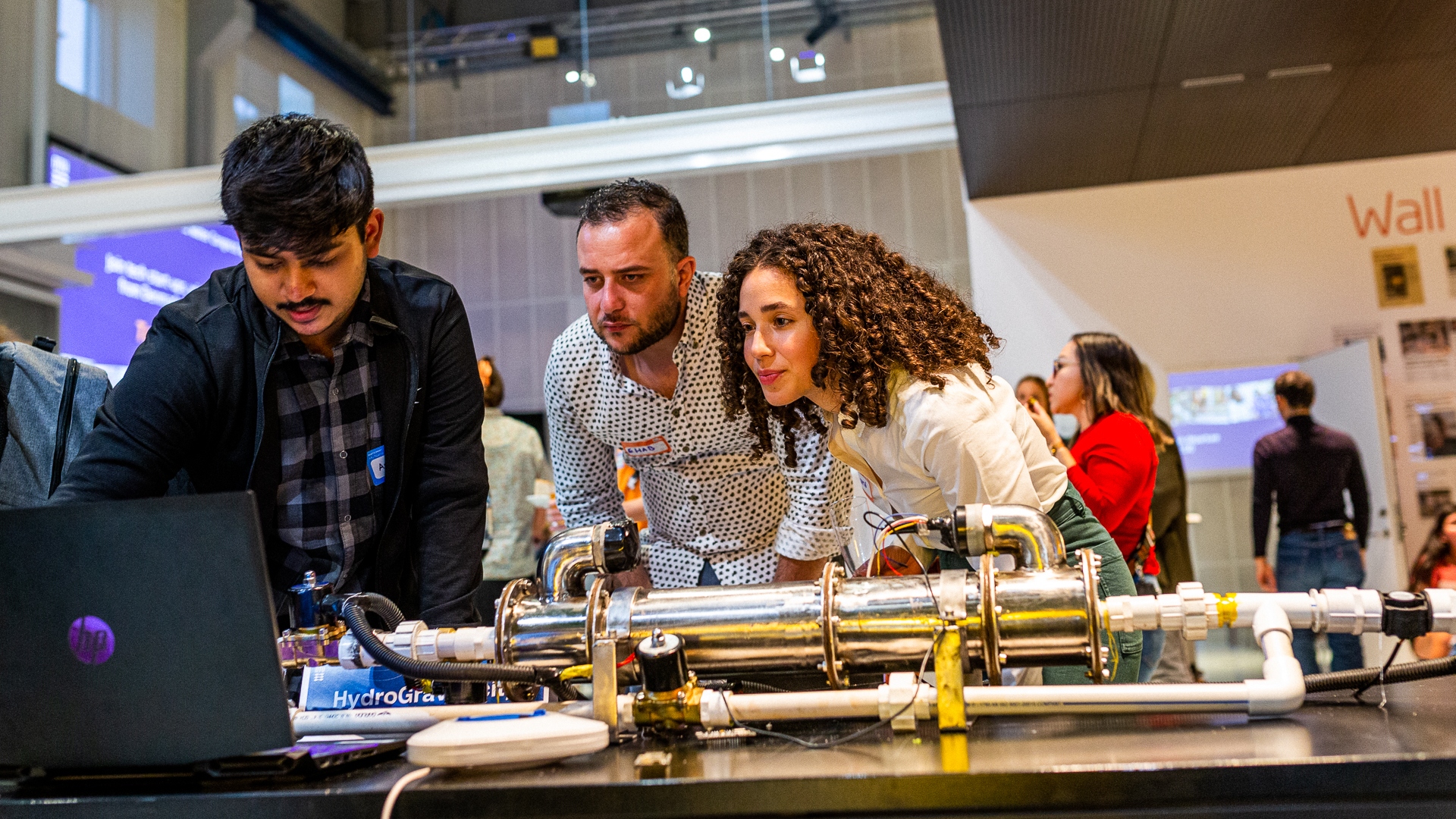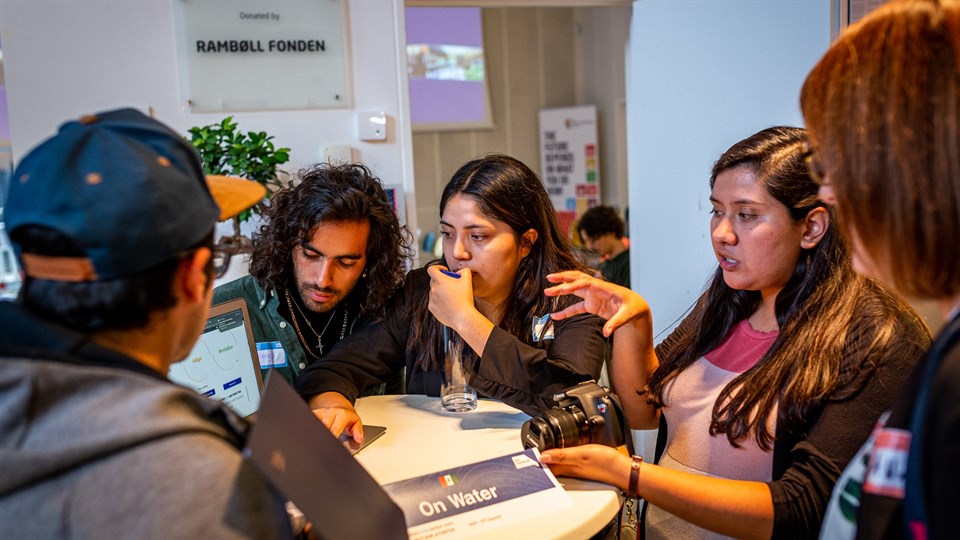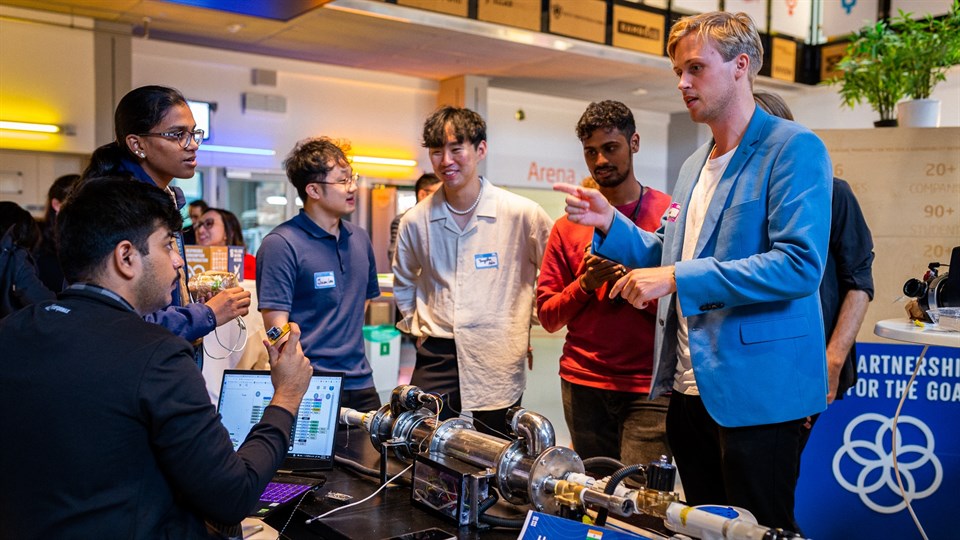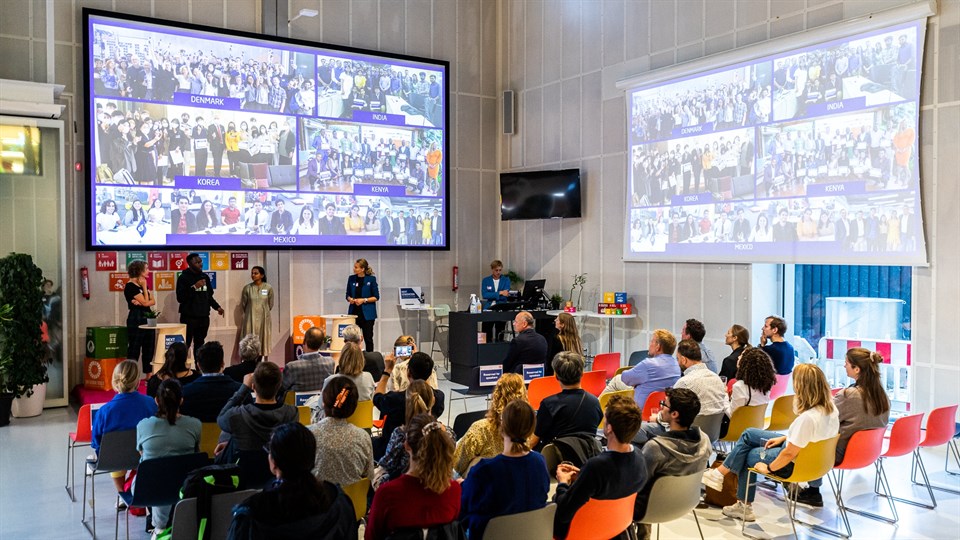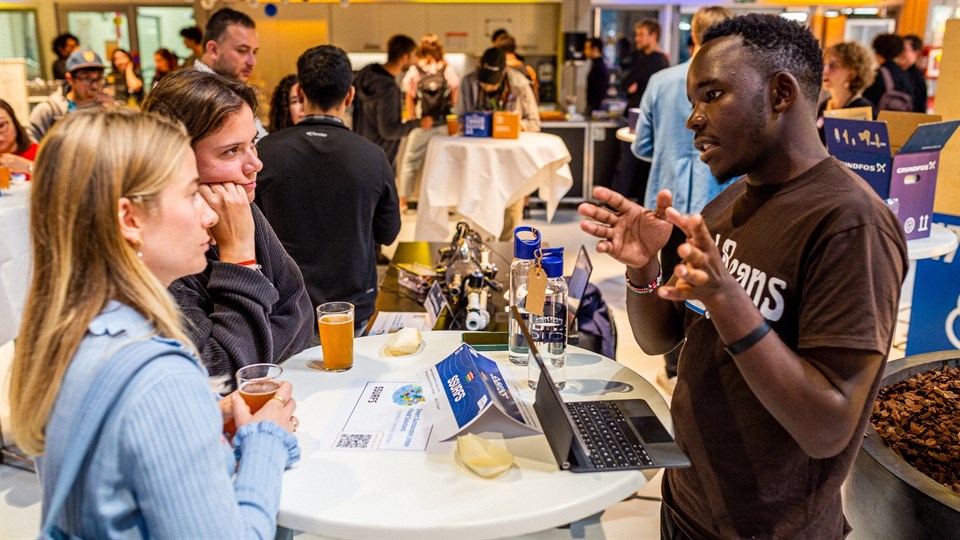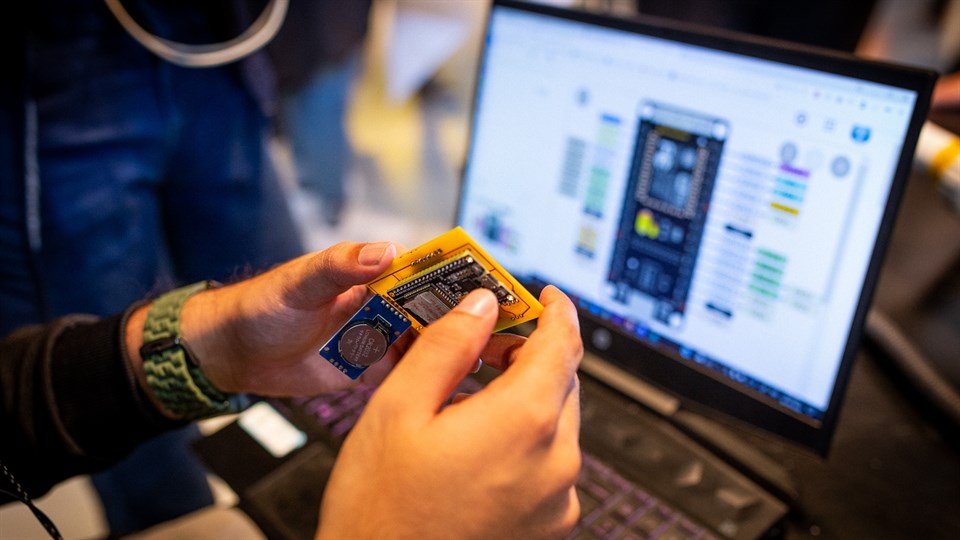Water is something that we often take for granted, but it will be one of the planet’s biggest issues in the future. Drinking water shortages, flooding, groundwater pollution, and wastewater utilization are Gordian knots that need to be untied, but oftentimes those most affected by the challenges are not consulted: young people.
This is something the participants in the global initiative Next Generation Water Action are trying to change. Here, students and entrepreneurs from five countries try to solve a number of challenges posed by players from the industry, such as Region Zealand, Ramboll, and Grundfos.
The students behind the best solutions have been invited to the IWA World Water Congress held in Copenhagen on September 11-15, which brings together 10,000 professionals, experts, and decision-makers from the water sector at one of the world’s largest water conferences, making it an excellent showcase for the students.
Next Generation Water Action is the brainchild of DTU’s innovation hub, DTU Skylab, in collaboration with DTU Sustain, and the initiative offers a unique opportunity for students to meet companies in the water industry at eye level.
“This summer’s water crises are excellent examples of how important it is that the water industry constantly develops and adapts sustainable solutions for society on a global level. We rely on young people taking an interest in being part of developing the solutions of the future,” says Marie Louise Pollmann-Larsen, Project Manager for Next Generation Water Action at DTU Skylab.
She believes that the younger generation can bring a new perspective to the problems because they do not know the existing practices and thus do not allow themselves to be weighed down by past experiences from the water industry.
“It also gives sparks an interest among young people in the water industry, which is otherwise an industry that has a hard time attracting them,” she says.
From Mexico to New York
The engineering and consultancy company Ramboll is behind one of this year’s challenges, in which the participants had to find ways to prevent flooding in the Gowanus district of Brooklyn, New York. A group of students at Tecnológico de Monterrey in Mexico came up with a solution that went in an entirely different direction than what Ramboll had previously considered. The students proposed using a traditional Mexican farming method called chinampas to soak up rainwater through artificial islands with crops and plants.
“It’s precisely the kind of out-of-the-box, creative thinking that excites me about these kinds of innovation challenges,” says Emory Lee, who is head of climate adaptation at Ramboll’s New York office.“The proposal isn’t just a pipedream; it represents a concept that that could actually exist in reality with the right resources, investments and buy-in,” she says.
And even though the New York example may seem distant, Denmark and large parts of the world will face similar challenges of flooding and extreme rain in the future.
“If we are to achieve our climate goals, Denmark must also be open to what we can learn from the world,” says Marie Louise Pollmann-Larsen.
